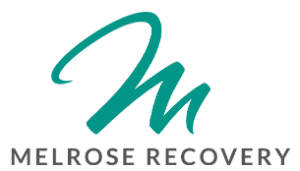Delirium Tremens
Delirium Tremens – At Melrose Recovery, we believe everyone deserves a second chance. Our foundation is built on lived experience—where struggles with alcohol abuse no longer define us, but instead fuel our mission to help others reclaim their lives.
We offer transformative recovery rooted in acceptance, connection, and support. Our purpose is to guide individuals facing alcohol addiction toward lasting freedom, empowering them to break the cycle and build a brighter future.
Since 2015, Melrose Recovery is dedicated to changing lives. Our comprehensive comprehensive delirium tremens treatment approach encompasses detoxification, residential care, and aftercare services, all tailored to meet each individual’s unique needs on their recovery journey.
Led by a compassionate team of addiction professionals and counselors, we offer a range of therapy programs designed to support and guide individuals suffering delirium tremens symptoms toward lasting sobriety. At Melrose Recovery, we believe in the power of personalized care and diverse treatment options to pave the way for a brighter future.

Delirium Tremens: A Critical Stage of Alcohol Withdrawal
What Is Delirium Tremens?
Delirium tremens (DTs) is the most severe and dangerous form of alcohol withdrawal. It causes sudden and extreme changes in brain and nervous system activity, often leading to confusion, agitation, and potentially life-threatening complications such as seizures or cardiac collapse. DTs occur in people with a long history of heavy alcohol use, especially when they suddenly stop drinking.
How Common Is It? – Delirium Tremens
DTs are relatively rare but extremely serious. Among people with chronic alcohol dependence, more than half experience withdrawal symptoms when they stop drinking. Of those, about 5% to 10% may develop DTs.
When Does It Happen and How Long Does It Last? – Delirium Tremens
Delirium tremens typically begins 3 to 10 days after the last drink. However, in some cases, symptoms can start as early as 48 hours after stopping alcohol. Once DTs begin, they can last up to 5 days.
What Causes Delirium Tremens?
Alcohol affects brain chemicals, especially GABA, which helps calm brain activity. Over time, the brain adjusts to the presence of alcohol. When alcohol use stops suddenly, the calming effect disappears, and the brain becomes overstimulated. This can lead to:
-
Tremors
-
Hallucinations
-
Agitation
-
Rapid heart rate and high blood pressure
-
Seizures
Who’s at Risk for DTs? – Delirium Tremens
The biggest risk factor is alcohol dependence. Other contributing factors include:
-
Previous alcohol withdrawal or DT episodes
-
Long-term or heavy drinking
-
Co-occurring mental or physical health issues
-
Malnutrition or vitamin deficiencies
-
Older age
-
Low electrolyte levels (like potassium or platelets)
-
Recent detox attempts
-
A long gap since the last drink despite a recent heavy drinking pattern
Symptoms of Delirium Tremens
DT symptoms fall into two main categories:
1. Severe Mental Confusion
-
Disorientation and confusion
-
Agitation and restlessness
-
Incoherent speech
-
Difficulty understanding surroundings
2. Overactive Autonomic Nervous System – Delirium Tremens
-
High blood pressure
-
Racing heart
-
Fever
-
Heavy sweating
-
Tremors
-
Nausea and vomiting
-
Seizures
Hallucinations in DTs – Delirium Tremens
DTs often cause “immersive hallucinations,” where a person believes they’re somewhere else entirely. For example, someone might think they’re cooking in a kitchen when they’re actually in a hospital room. This is different from alcoholic hallucinosis, which usually involves hearing voices and happens earlier in withdrawal—typically without confusion or abnormal vital signs.
How Is It Diagnosed? – Delirium Tremens
DTs are diagnosed based on:
-
Medical history, including drinking patterns and past withdrawal episodes
-
Physical signs, like high heart rate (often over 150 bpm), fever, tremors, and confusion
-
Family input, which can help provide a clearer picture
Testing and Monitoring – Delirium Tremens
Doctors use tools like the CIWA-Ar (Clinical Institute Withdrawal Assessment for Alcohol, Revised) to assess withdrawal severity. It includes questions on symptoms like anxiety, tremors, and hallucinations. A score above 15 indicates severe withdrawal and a high risk of DTs.
Additional lab tests often include:
-
Blood alcohol levels
-
Liver and kidney function tests
-
Electrolyte levels
-
Vitamin deficiencies
-
Urine drug screen
Treatment for Delirium Tremens
DTs are a medical emergency. Early treatment greatly reduces risk of complications. Standard care includes:
1. Medications
-
Benzodiazepines (e.g., diazepam) are the first-line treatment to calm the nervous system and prevent seizures.
-
In severe cases, sedatives like propofol, ketamine, or barbiturates may be used in intensive care.
2. Supportive Care
-
IV fluids to treat dehydration
-
Nutritional support, including thiamine, folate, and dextrose
-
Monitoring in a hospital, often in an ICU
Complications of Delirium Tremens
Without proper care, DTs can be fatal. Even with treatment, 5–15% of cases can result in death. Major complications include:
-
Heart arrhythmias
-
Respiratory failure
-
Severe dehydration
-
Brain disorders like Wernicke-Korsakoff syndrome
-
Infections, pancreatitis, and liver damage
Getting Help for Alcohol Use Disorder – Delirium Tremens
Delirium tremens is preventable with the right treatment and support. If you or a loved one struggles with alcohol use, early intervention can save lives. Don’t wait until it becomes an emergency. Contact Melrose Recovery today to begin your journey toward recovery.
Frequently Asked Questions About Delirium Tremens
What is Delirium Tremens (DTs)?
Delirium tremens is the most severe form of alcohol withdrawal, involving sudden and severe mental and physical symptoms such as confusion, hallucinations, and seizures.
What causes Delirium Tremens?
DTs are caused by a sudden stop or significant reduction in alcohol consumption in someone who is physically dependent on alcohol.
How does alcohol dependence lead to DTs?
Chronic alcohol use alters brain chemistry. When alcohol is suddenly removed, the nervous system becomes hyperactive, leading to DT symptoms.
Is Delirium Tremens a medical emergency?
Yes. DTs are life-threatening and require immediate medical attention.
How common is Delirium Tremens?
About 5–10% of people who experience alcohol withdrawal develop DTs.
Symptoms and Signs
What are the key symptoms of DTs?
Confusion, agitation, hallucinations, high blood pressure, rapid heart rate, fever, sweating, and seizures.
When do DT symptoms typically begin?
Symptoms usually start 3–10 days after the last drink but can occur as early as 48 hours.
What type of hallucinations occur with DTs?
Immersive hallucinations—people may believe they are in entirely different places or situations.
How do DT hallucinations differ from alcoholic hallucinosis?
DT hallucinations are immersive and accompanied by confusion, while alcoholic hallucinosis involves auditory hallucinations without disorientation.
Can DTs cause seizures?
Yes, seizures are a serious and common symptom of DTs.
Risk Factors
Who is at risk for developing DTs?
People with a history of heavy, long-term alcohol use, especially those who have experienced previous withdrawals.
Does age affect DT risk?
Yes, older adults are at a higher risk of developing DTs.
Can poor nutrition contribute to DTs?
Yes, malnutrition, especially vitamin deficiencies (e.g., thiamine), increases the risk.
Are people with mental health conditions at higher risk?
Yes, co-occurring mental health disorders increase the likelihood of DTs.
Can you develop DTs without ever having had alcohol withdrawal before?
It’s less common, but possible in severe alcohol dependence.
Diagnosis and Assessment
How is Delirium Tremens diagnosed?
Diagnosis is based on clinical history, physical exam, and withdrawal symptoms.
What is the CIWA-Ar scale?
It’s a tool (Clinical Institute Withdrawal Assessment for Alcohol, Revised) used to assess alcohol withdrawal severity.
What vital signs are monitored in suspected DT cases?
Heart rate, blood pressure, temperature, and respiratory rate.
What lab tests are often done?
Blood alcohol levels, liver function tests, electrolytes, and vitamin levels like thiamine.
Can family input help with diagnosis?
Yes, family members can provide key details about the individual’s drinking history.
Treatment and Management
What is the primary treatment for DTs?
High-dose benzodiazepines like diazepam to calm the nervous system and prevent seizures.
Are other medications used besides benzodiazepines?
Yes, in severe cases, sedatives like propofol, barbiturates, or ketamine may be used under intensive care.
Is hospitalization always required for DTs?
Yes, treatment should take place in a hospital—often in an ICU—for close monitoring.
Are IV fluids and vitamins given during treatment?
Yes, IV fluids with thiamine, folate, electrolytes, and glucose are essential to correct deficiencies and prevent complications.
What is the mortality rate for untreated DTs?
Without treatment, the mortality rate can exceed 30%. With treatment, it drops to 5–15%.
Don’t Wait to Look for a Drug Addiction Treatment Program
Health Insurance PPO Plans for Delirium Tremens
PPO Plans for Melrose Recovery Delirium Tremens Rehab in Los Angeles, California
Finding effective treatment for drug and alcohol addiction is one of the most important steps in the recovery journey. For many individuals and families, navigating how to pay for rehab can be a major concern. Fortunately, Melrose Recovery, a leading addiction treatment center in Los Angeles, California, accepts a wide range of PPO (Preferred Provider Organization) health insurance plans, making high-quality care more accessible and affordable.
Why Choose Melrose Recovery?
Melrose Recovery offers a structured and supportive environment for individuals seeking recovery from substance use disorders. Their programs include:
-
Medical Detox
-
Residential Inpatient Treatment
-
Dual Diagnosis Treatment
-
Individual and Group Therapy
-
Aftercare Planning
What sets Melrose apart is their client-centered approach, experienced clinical team, and commitment to long-term recovery. Located in Los Angeles, the facility provides a safe and comfortable setting to begin healing.
What Are PPO Insurance Plans?
PPO insurance plans allow policyholders to see healthcare providers both inside and outside of their insurance network, usually without a referral. When it comes to addiction treatment, this flexibility can be vital.
Key PPO benefits for rehab coverage:
-
Out-of-network options: You can still receive coverage for facilities not directly in your provider’s network.
-
No referral needed: You don’t need a referral from a primary care physician to start treatment.
-
More provider choices: PPO plans give you more freedom to choose the rehab facility that fits your needs.
Does Melrose Recovery Accept My PPO Insurance?
Melrose Recovery works with most major PPO insurance providers, including but not limited to:
- Aetna
- AmeriHealth
- Anthem
- Blue Cross Blue Shield
- Cigna
- Hawaii Medical Service Association (HMSA)
- Humana
- Kaiser Permanente
- Medical Mutual
- Premera Blue Cross
- UnitedHealthcare
Melrose Recovery’s admissions team is available 24 hours a day 714-442-7782 to verify your insurance benefits quickly and confidentially. This process helps determine your coverage, deductible, co-pays, and out-of-pocket maximums before starting treatment.
Verifying Insurance Coverage
To find out if your PPO insurance plan covers treatment at Melrose Recovery:
-
Call Melrose Recovery directly – Speak with an admissions specialist who can walk you through the insurance verification process.
-
Submit insurance info online – Many treatment centers, including Melrose, offer a secure online form for quick verification.
-
Check with your insurer – You can also contact your insurance company directly and ask about your behavioral health benefits.
The Importance of Getting Help
Addiction is a chronic and progressive condition—but with the right support, recovery is absolutely possible. By accepting a variety of PPO plans, Melrose Recovery helps reduce financial barriers to care, so individuals and families can focus on healing rather than costs.
Take the First Step Today
If you or a loved one is struggling with addiction, don’t wait. Melrose Recovery in Los Angeles offers compassionate, evidence-based care in a supportive setting. With PPO insurance coverage, treatment may be more affordable than you think.
Contact Melrose Recovery today to learn more about admissions and insurance verification. Your path to recovery can start now.





Get In Touch
info@melroserecovery.com
501 North Mariposa Ave, Los Angeles, CA 90004



